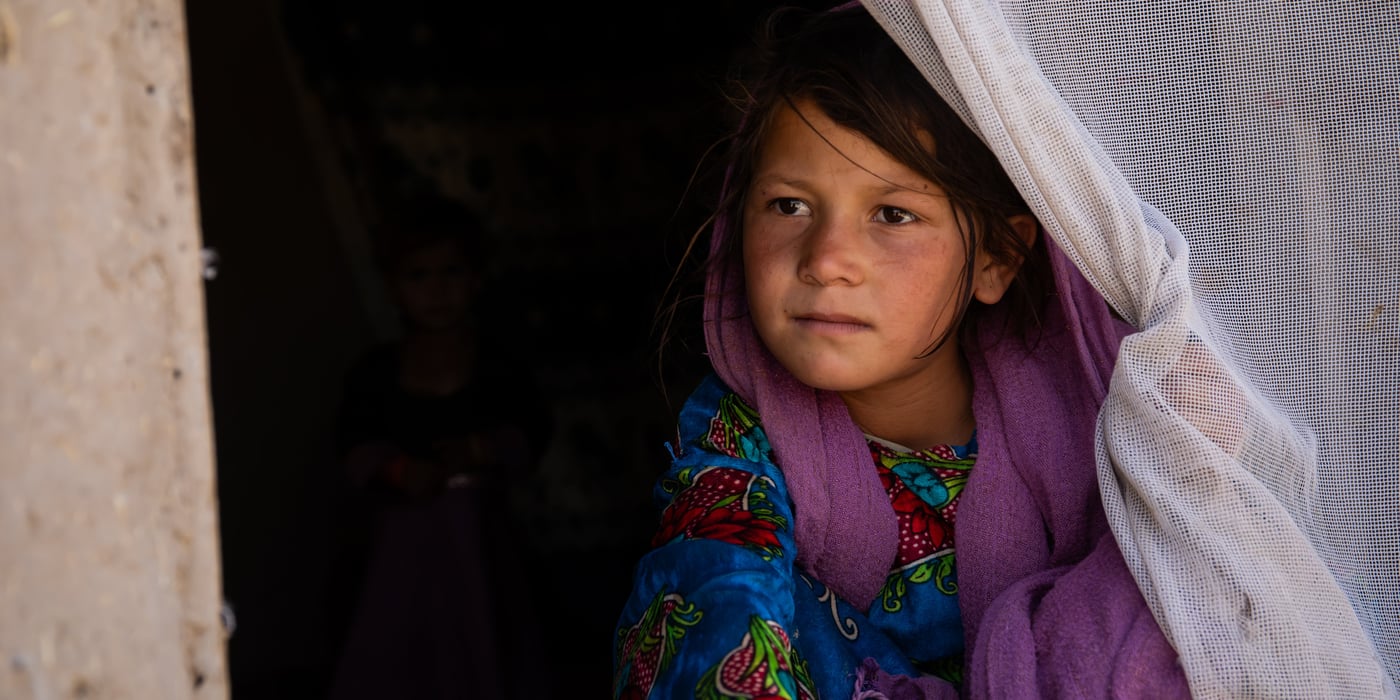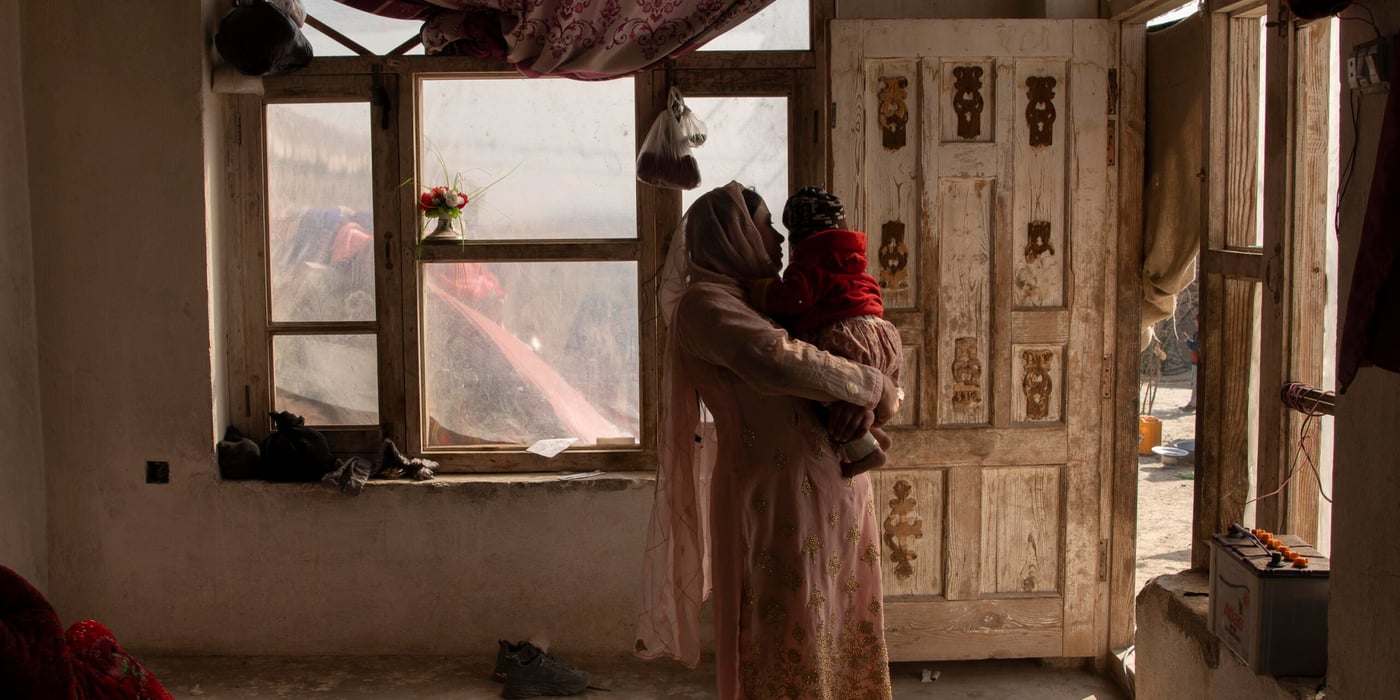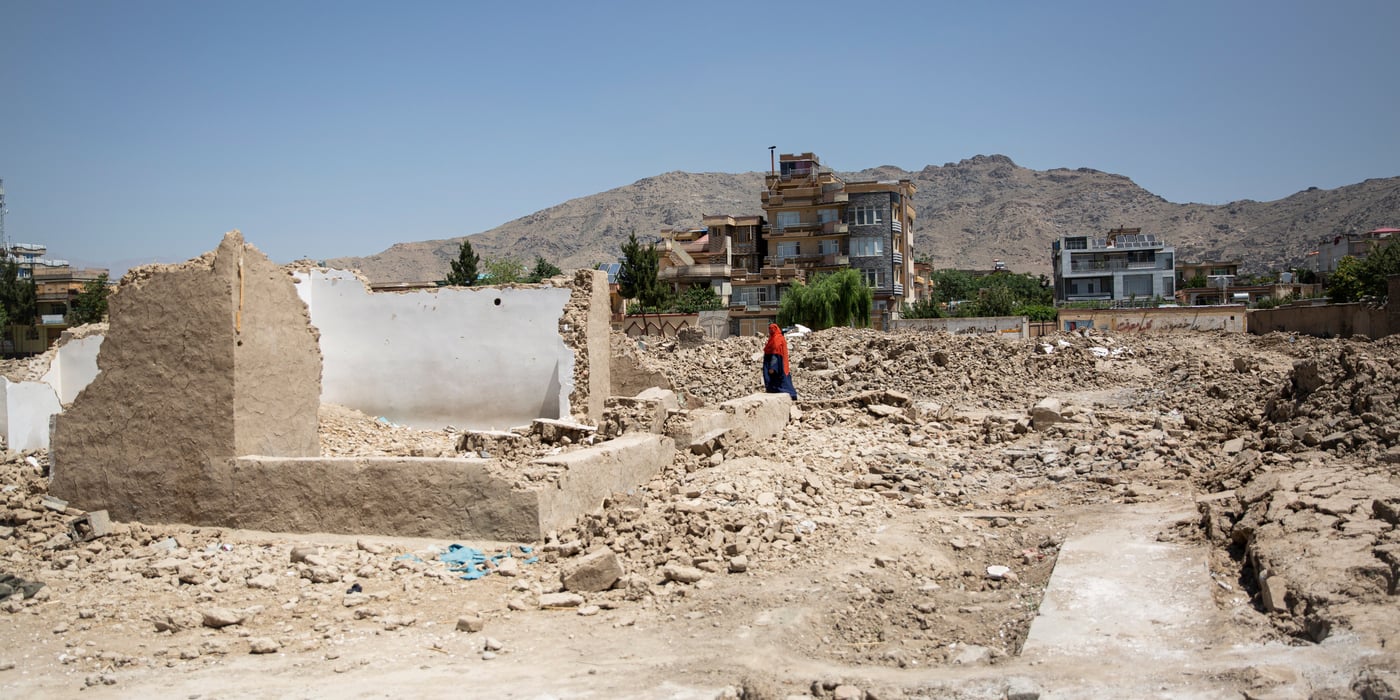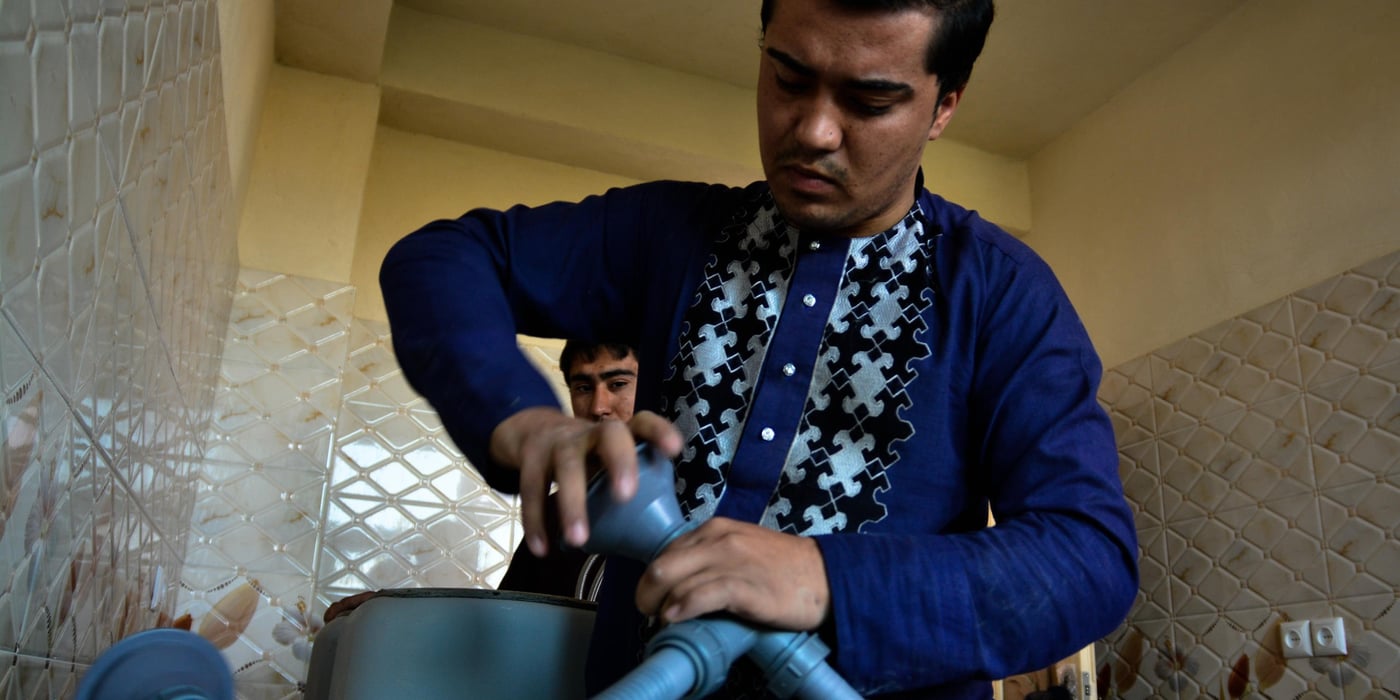
“I have skills, jobs and can earn money to support myself and my family thanks to this training. The Norwegian Refugee Council kept me off the streets,” Esmatullah (18) explains, gratefully.
He is one of the graduates of a Youth Education Pack (YEP) program for displaced out-of-school youth in Faryab Province, funded by the Norwegian Agency for Development Cooperation (NORAD).
The province has some of the highest number of displaced persons, following years of war and conflict. These displaced youth have little or no schooling, and as a result limited employment opportunities. The program combines literacy and life skills with vocational training, to give youth the necessary qualifications for them to be able to get a job.
Esmatullah never had the chance to go to school. He was illiterate and had no skills.
“I wanted to work, but I couldn’t find anything sustainable. So I spent a lot of time, entire days, sitting in front of shops at bazaars or roaming around the streets looking for any employment.”
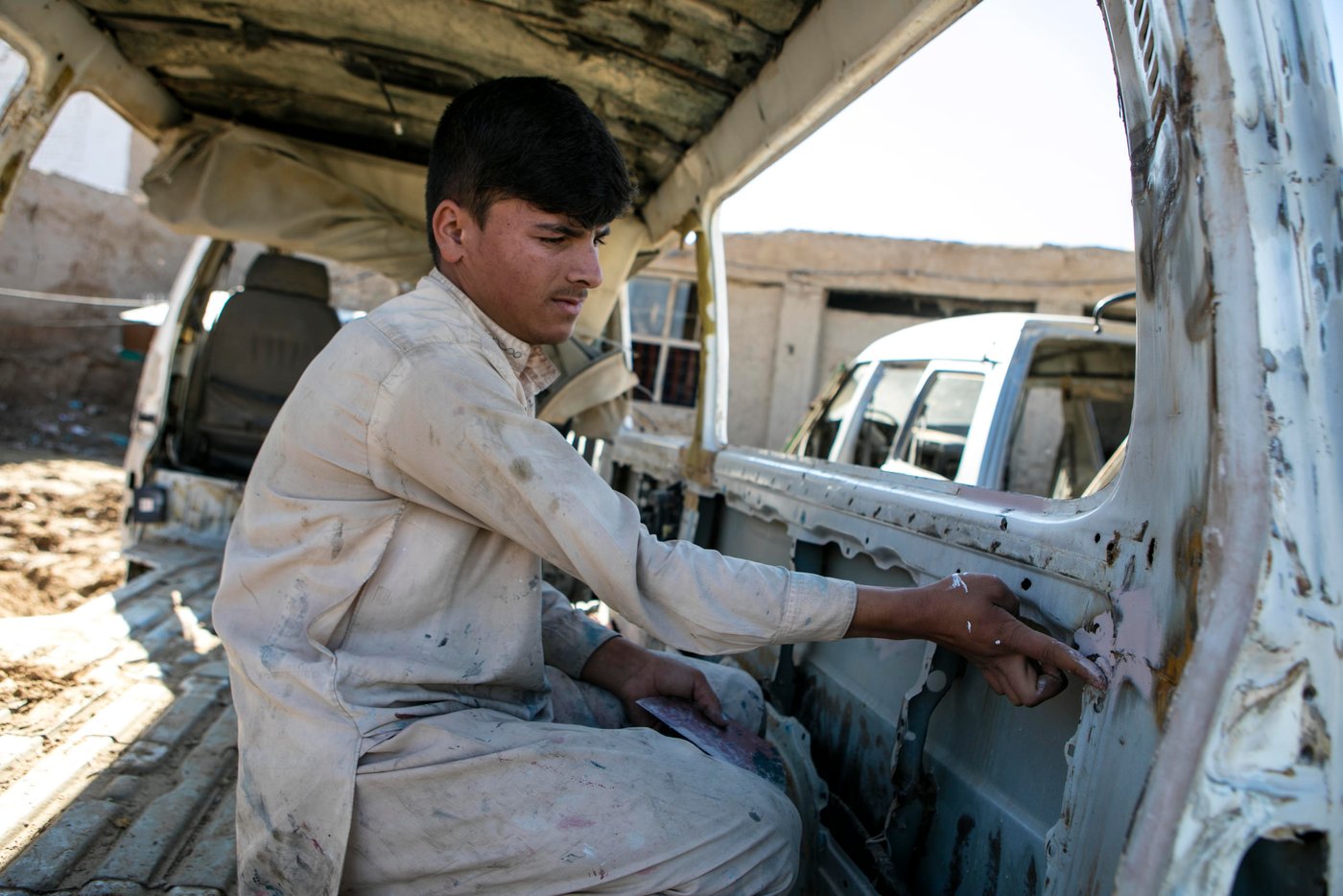
Youth unemployment
Youth unemployment is one of the major issues facing Afghanistan. The unemployment rate in Afghanistan is expected to be at 40 percent by the end of 2016, according to analysts at Trading Economics.
Hasibullah,18, at an auto-mechanic workshop in Maimana city in Faryab Province, also benefited from the youth program.
Hasibullah was forced to leave his home town in Pashtun Kot district due to increased conflict and moved to Maimana city. But once there, he had no job and was unable to support his family.
When the youth program was started in Maimana, he enrolled for a nine-month course. Hasibullah had completed grade eight and couldn’t continue his studies due to his family’s poor financial situation. At NRC’s training he not only learned vehicle mechanic skills, but also to read and write.
“Before the training, I was working for others and could hardly earn 500 AFN a week. Now, I earn between 500 to 600 AFN per day (approx. $8 -10),” he says with pride.
Skills training
A total of 270 boys and 442 girls benefited from the youth program between 2013 and 2016 and we still see the impact today.
Most of them were youth between 15 and 24 years old who had dropped out of school, were illiterate, unemployed and extremely poor. Among the participants there were many internally displaced people, refugees who had returned to Afghanistan, as well as some vulnerable people from the host communities. They received skill trainings in subjects like tailoring, embroidery, plumbing, vehicle and motorcycle repair, technical repair, carpentry, curtain sewing, carpet waving and handicrafts.
Courses were selected based on market surveys and discussions with the local community and potential beneficiaries. After completing the program, all graduates received start-up kits customized for their acquired skills.
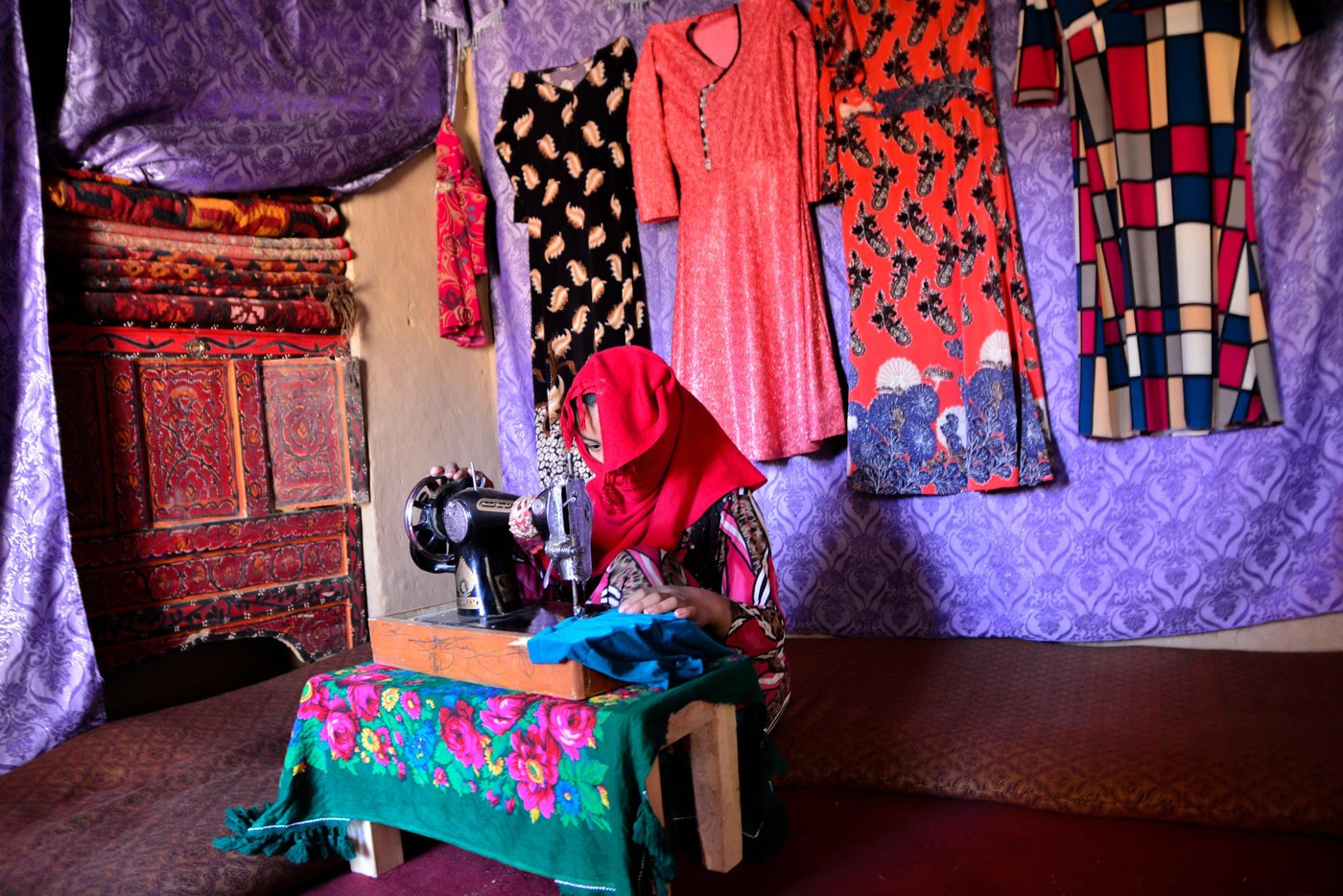
New designer
Also Satera,15, has been able to increase her earnings, after she attended the program.
“My life has changed a lot after the training,” says Setara. “My father didn’t let me go to school and he still doesn’t allow me to go out very much. But he doesn’t have any problem with me pursuing tailoring at home."
Setara attended a tailoring course in 2015. And while her father was initially against the idea of girls going to school, he allowed her to pursue tailoring since it was something she could do from home, to contribute to the household income.
Now she designs and sews clothes for women and children in her neighbourhood.
“Earlier, I used to cook and clean, but now I’m able to do much more. I earn around 1000 to 1500 AFN ($20-$25) per month,” she says.
“I spend the money I earn to help support my family and buy medicine for my elderly grandmother,” she adds with pride.
Opportunities for youth
There are many such success stories from those who participated in the program. Esmatullah hope other Afghan youth will get the same opportunities as himself.
“I wish there were more projects that empower the vulnerable youth of Afghanistan,” Esmatullah says with hope.


